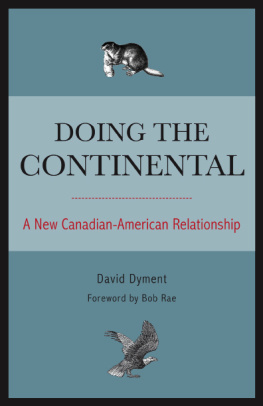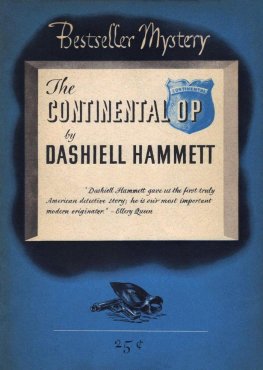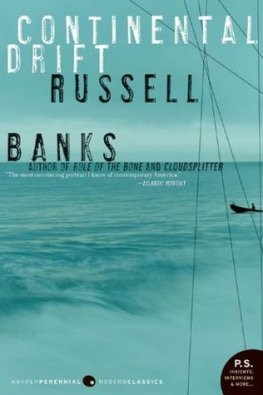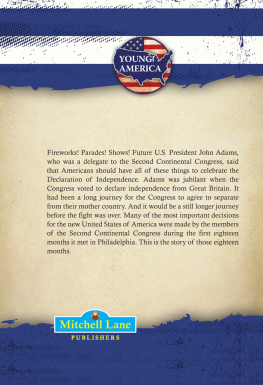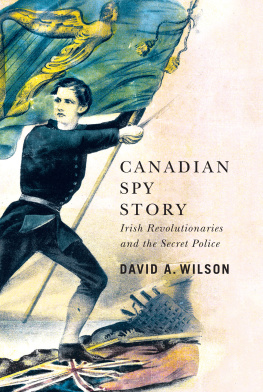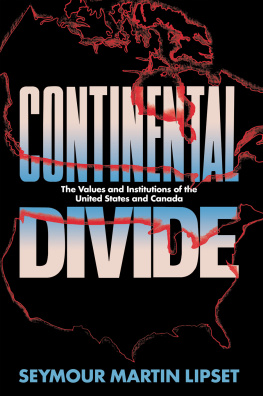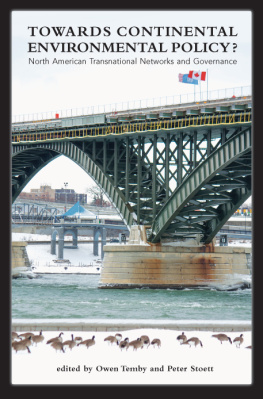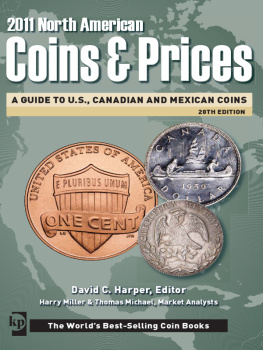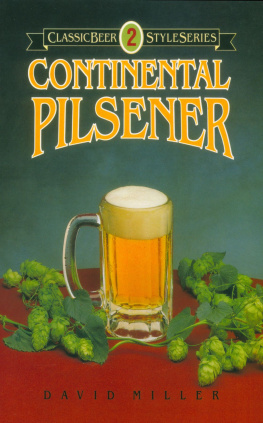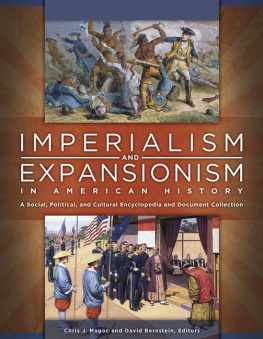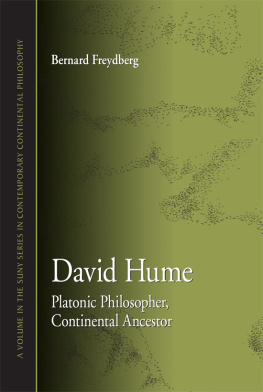D OING THE C ONTINENTAL
Advance Praise for Doing the Continental
Doing the Continental is very good, wise on all fronts. The chapter on our lack of an energy policy is very convincing.
Lawrence Martin, columnist and former Washington Bureau chief with the Globe and Mail
Dyments book provides a provocative assessment of where Canada goes from here in the development of its relationship with the United States. For Dyment, the new continental dance should result in Canada being a more assertive and sophisticated partner.... His book will generate a much-needed debate on Canadas future policy priorities toward the superpower to its south.
Earl Fry, Ph.D., endowed professor with the David M. Kennedy Center for International Studies of Brigham Young University and past president of the Association for Canadian Studies in the United States
Doing the Continental is timely, well written, and accessible to a broad audience. It covers the major issues in Canada-U.S. relations today and provides a valuable historical perspective. The book's pragmatism and realism make it of value to policy makers.
Eugene Lang, co-author of The Unexpected War: Canada in Kandahar
In this refreshingly accessible book, David Dyment argues that Canadian discussions of Canada-U.S. relations are so heavily dominated by extreme views that they frequently do more harm than good. His purpose, therefore, is to bring a more balanced perspective to bear. Some may disagree with his positions on specific issues, but much can be learned from the calm display of reason and sanity that he applies to a subject that so often generates more heat than light. His analysis deserves a very wide readership among those interested in Canadian politics and foreign policy.
Denis Stairs, Ph.D., professor emeritus of political science at Dalhousie University, Fellow of the Royal Society of Canada, and past president of the Canadian Political Science Association
D OING THE C ONTINENTAL
A New Canadian-American Relationship
DAVID DYMENT
Foreword by Bob Rae
Copyright David Dyment, 2010
All rights reserved. No part of this publication may be reproduced, stored in a retrieval system, or transmitted in any form or by and means, electronic, mechanical, photocopying, recording, or otherwise (except for brief passages for purposes of review) without the prior permission of Dundurn Press. Permission to photocopy should be requested from Access Copyright.
Project Editor: Michael Carroll
Editor: Jennifer McKnight
Design: Courtney Horner
Library and Archives Canada Cataloguing in Publication
Dyment, David
Doing the continental [electronic resource] : a new Canadian-American relationship / by David Dyment ; foreword by Bob Rae.
Includes bibliographical references and index.
Electronic monograph in PDF format.
Issued also in print format.
ISBN 978-1-55488-814-6
1. Canada--Foreign relations--United States. 2. United States--Foreign relations--Canada. 3. Canada--Politics and government--2006-. I. Title.
FC249.D93 2010a 327.71073 C2010-902398-6
We acknowledge the support of the Canada Council for the Arts and the Ontario Arts Council for our publishing program. We also acknowledge the financial support of the Government of Canada through the Canada Book Fund and The Association for the Export of Canadian Books , and the Government of Ontario through the Ontario Book Publishers Tax Credit program , and the Ontario Media Development Corporation .
Care has been taken to trace the ownership of copyright materials used in this book. The author and the publisher welcome any information enabling them to rectify any references or credits in subsequent editions.
J. Kirk Howard, President
www.dundurn.com
Dundurn Press
3 Church Street, Suite 500
Toronto, Ontario, Canada
M5E 1M2
Gazelle Book Services Limited
White Cross Mills
High Town, Lancaster, England
LA1 4XS
Dundurn Press
2250 Military Road
Tonawanda, NY
U.S.A. 14150
To Jane, Oliver, and Claire
FOREWORD
By Bob Rae
Important symbols of Canadian parliamentary sovereignty have been in the custody of the United States for nearly two hundred years, captured by American forces in 1813 when the town of York (now Toronto) was burned and the legislative assembly of Upper Canada was plundered.
In other countries this would have become the subject of intense nationalist feeling and struggle. This has not been so in Canada. Most Canadians and Americans neither know nor care about it. We have grown together on both sides of a remarkably open border, and with the signing of the free trade agreements complete continental integration seemed well underway.
David Dyment explores the deeper dimensions of this relationship, which is not at all simple and has real issues attached to it. The divides have never been unbridgeable, but they are very real, and Davids careful scholarship shows how both the federal and provincial governments have wrestled with them in recent years.
These divides include the sheer difference in size and the fact that the border often seems more like a two-way mirror. Because we are so close, Canadians suffer from the illusion that we know the Americans as well as they do themselves. The American illusion is different: they believe that we are just like them. No doubt John F. Kennedy was right when he said that history and geography made us friends as well as neighbours, but Canadas particular personality and interests do not always converge with our American cousins.
I am always reminded of the simple fact that the majority of U.S. senators come from states with less than 20 percent of the U.S. population: hence our deep trade challenges in softwood lumber, agriculture, and resources. American exceptionalism is deeply ingrained in its soul. Canada has no choice but to see itself as an inextricable part of the world itself. We are in the world and the world is in us.
David Dyment explores the dimensions of this unavoidable relationship with intelligence and gusto. His book will help us both to understand each other better.
PREFACE
President Barack Obama sits down at his desk in the Oval Office for the first time. One of the furthest things from his mind is Canada. From time to time he will receive a briefing that has to do with our country, occasionally a phone call.
On Capitol Hill, the whirling pursuit of interests is intense. The powerful Congress will make decisions based largely on domestic considerations, over which Obama can do little, and which are sometimes not helpful to Canada.
In Ottawa our senior officials worry. Well pay a price, they say, for getting offside with the Americans. They are too referential to an imperial centre to appreciate that our neighbours arent even paying attention.
I started this project worried that we were being drawn by the Americans into their maw but soon realized its not about them, its about us. Its about how we see ourselves.
As an author, professor, media commentator, Ph.D. in Canadian politics and international relations, and former senior adviser at Foreign Affairs, this was my personal and professional journey to explore Canadas future with the U.S. I travelled with transborder truckers and interviewed ambassadors. I attended a myriad of conferences where advocates from the right and left railed for and against closer relations with the Americans. While I started on the left I soon realized that both the left and the right are waging an ideological, polarized war that has us missing opportunities.



